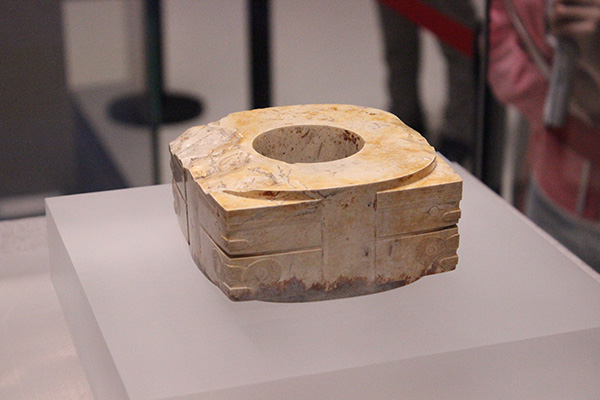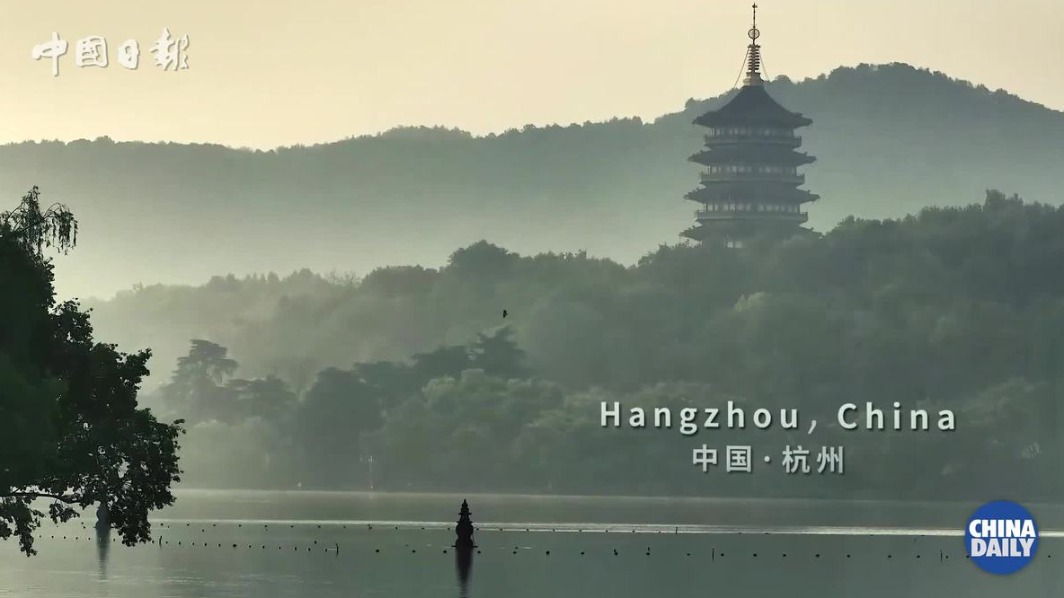Ancient site stands the test of time

The 5,300-year-old, 6.5-kilogram "King of Cong", a jade object boasting exquisite decorative patterns and sacred emblems, was found in a pit at Fanshan cemetery in Liangzhu in 1986. [PHOTO BY LI HUILI/FOR CHINA DAILY]
Links with water
In Chinese, Liangzhu translates as "beautiful isle", and this culture was intricately connected with water.
For example, of nine heritage sites found at the city gate, eight were built above water, while research from 2010 to 2016 revealed a complicated dam system.
Wang Ningyuan, a researcher with the Zhejiang Provincial Institute of Cultural Relics and Archaeology, said: "This water conservancy system was crucial for people in Liangzhu city. It not only controlled flooding, but in an age with no vehicles and domesticated horses, waterways comprised the main mode of transportation for the residents."
Waterways in the mountainous area might not have been able to take large vessels, but the water was stored in an artificial reservoir, estimated to be 13 sq km, about two times the size of the West Lake in Hangzhou, Wang said. Some parts of the reservoir are still used.
There was also a network of canals in the city, with a total length of 32 kilometers. As the city was built above marshland, all building materials had to be transported from out of town by canal.
Wang has also found sites near the dams that he thinks were used to grow rice. He said the reservoir was probably used for irrigation as well. In 2017, the ruins of a burned barn were found near the Mojiaoshan site, containing an estimated 200,000 kg of carbonated rice.
"Liangzhu is a unique example of early-stage civilizations in the world, whose economy relied on cultivating rice, while other civilizations were mainly fed by wheat," Wang said.
Li Boqian, an archaeology professor from Peking University, said the emphasis on conserving water in ancient China may be a legacy from Liangzhu city.
Water not only brought prosperity, but also ended it. Liangzhu was abandoned 4,300 years ago. Although archaeologists are still uncertain of the reason, the most common explanation is flooding, a theory backed by Liu and Li.
-
'Nice' to meet you, Hangzhou
May 6, 2024



